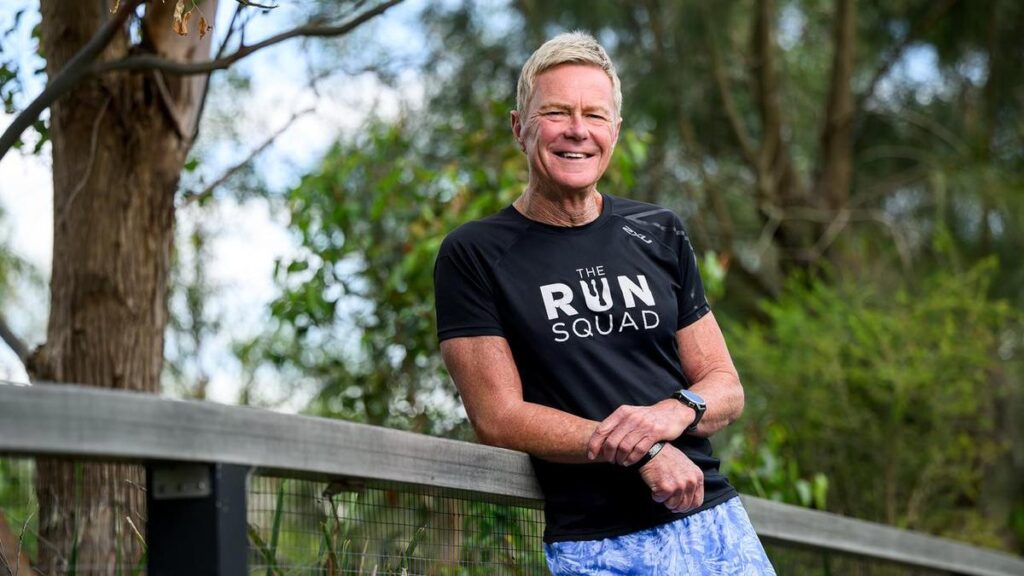Warren Williams had no warning his heart was about to stop.
A champion masters runner revered for his fitness, the then-59-year-old was powering up a hill he tackled every week in Sydney’s eastern suburbs when he suddenly collapsed.
“I actually thought to myself, ‘gee I look pretty good running up here,’ and then everything just went black instantly,” Mr Williams told AAP.
He had collapsed into a wall, smashing his face, before falling backwards and cutting the back of his head open.
His training squad caught up to him in seconds and were about to start CPR when, just as suddenly, he came to feeling fine.
Mr Williams insisted on running the three kilometres back to his car and he didn’t get around to visiting a doctor until after a day of work.
He was subsequently told he had suffered a cardiac arrest caused by a rupture in his left anterior descending artery, the heart’s largest and the one known as the “widowmaker” for the often-devastating impact of a blockage.
Diagnosed with arrhythmia over a decade earlier, Mr Williams had a pacemaker fitted, so doctors were quickly able to establish what had happened.
“They found that I’d gone into cardiac arrest … basically I was dead for about a minute,” he said.
Mr Williams’ cardiologist told him he should be in the morgue.
Now 61 and living with a defibrillator – describing himself as “a normal person with a lot of metal in my chest” – he has become part of a new Heart Research Institute program placing the experiences of patients at the centre of scientific discovery.
Julie McMullen, the Sydney-based institute’s deputy director, said stories like Mr Williams’ revealed how varied and often misunderstood cardiovascular diseases could be.
“I think it’s really important that we raise awareness of the fact that cardiovascular disease really can impact absolutely anybody,” she said.
“We know it can happen to fit and healthy people like Warren or it can happen to young females as well, and it’s really important we get that message out there.”
Cardiovascular disease is one of Australia’s biggest health problems, accounting for one in four of all deaths and claiming the life of one person every 12 minutes.
The program links researchers with people who have survived events such as heart attacks or strokes so scientists can better understand what conditions feel like, rather than relying only on clinical data.
Professor McMullen said a diversity of perspectives mattered because diseases were not the same for everybody.
“If we can understand those differences, ultimately we can also better treat patients,” she said.
Mr Williams’ “quite unique” story – from the absence of symptoms to his physical resilience – could help researchers understand why some patients survived catastrophic events but most did not.
For others, Prof McMullen’s advice is simple: trust your instincts and see a doctor if something doesn’t feel right.
Mr Williams agrees: the man who once believed his fitness made him bulletproof now urges others to get checked early.
“I’m the prime example that no matter how fit you are, there could be something underlying,” he said.
https://thewest.com.au/news/health/how-one-widowmaker-survivor-is-helping-heart-science-c-20831058


